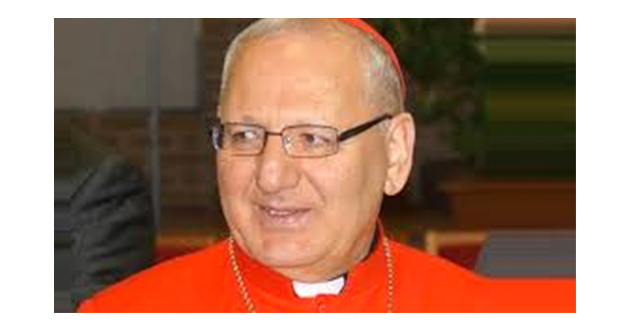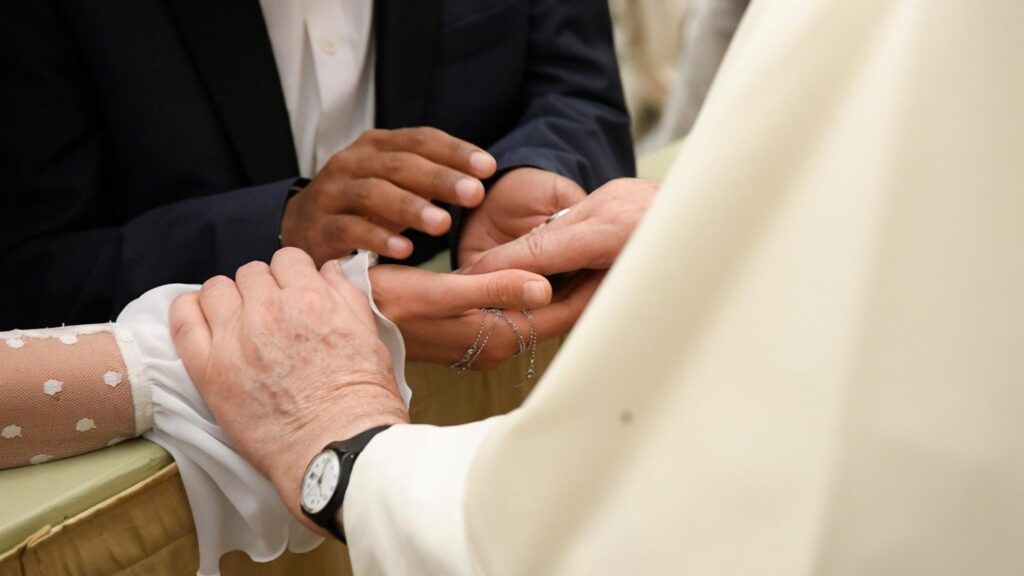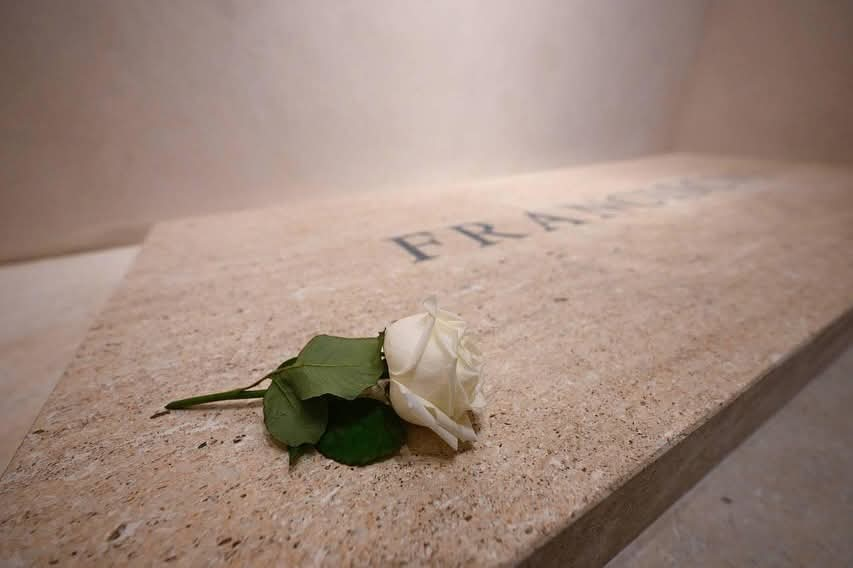Iraq: ‘Thank God the Pope is Coming’
Patriarch Sako on Pope's Apostolic Journey to Iraq

“I have just returned from the cathedral where I went to see the preparations. There was a woman there, in front of the grotto of the Madonna. A Muslim woman came to pray to the Virgin Mary. She said: “Thank God the Pope is coming. And this visit is a kind of last hope for the Iraqis”.
On the eve of Pope Francis’ visit to Iraq, Cardinal Luis Raphael Sako, Patriarch of Babylon of the Chaldeans, tells Agenzia Fides the vibrant hopes of a community and a people who await the arrival of the Bishop of Rome also as an opportunity to look at the country’s treasures and the future.
“There is an extraordinary enthusiasm, which involves everyone. Sometimes” the Cardinal remarks, “it almost seems that Muslims are happier than Christians… We have decorated our churches, but all Iraqis have decorated entire cities…. There are Vatican flags and welcome posters everywhere, even in Najaf and Nassiriya … And in Mosul, the city that still presents itself with all its wounds Muslims have composed songs to welcome the Pope … It must be said loudly, the Pope is coming and there is no cause for fear, neither for himself nor for the Iraqis. This visit is like a dream come true. And we are like children preparing for a party. From the oldest to the youngest among us”. The Patriarch pronounces the sentence of Ayatollah Alì al Sistani written on the posters in which the photo of the country’s highest Shiite authority stands next to that of Pope Francis: “Al Sistani said: ‘You are a part of us, and we are a part of you’. It is a powerful way of saying that we are brothers”.
The Primate of the Chaldean Church also denies the assumption that the Pope’s visit should “consolidate” the social and political position of Christians in the Middle East: “The Pope”, said the Iraqi Cardinal in his interview with Fides, “does not come to defend and protect Christians. The Pope is not the commander-in-chief of an army. Of course, Pope Francis will encourage Christians, will bring them comfort and hope to help them to persevere, to hope, and also to collaborate with other citizens.
The Pope can do nothing else… He comes for all Iraqis, not just Christians. He knows that everyone has suffered, not just Christians. And as a Shepherd, he will encourage Christians to stay, hope, and rebuild trust in others”. The Patriarch does not even share the hyperbolic formulas of those who repeat that the Pope is going to Iraq to “block the genocide” of Christians. “If there was a genocide”, Patriarch Sako recalls, “it affected everyone: Christians and Yazidis more, but also Shiites and Sunnis in large number. We must not see Christians separated from others, for this is how the sectarian mentality is nourished. The Pope, on the other hand, will speak of human brotherhood, and also of spiritual brotherhood. For example in Ur, during the interreligious meeting, he will repeat that we are all brothers because faith in the one God makes us brothers and sisters. And he will demand the end of wars, fundamentalism, terrorism. Those who use the term “genocide” often do so for other political purposes”.
During his visit to Iraq, the Successor of Peter will also remember the many new Christian martyrs who line the path of the Christian communities in Baghdad and Mosul. The Chaldean Patriarch emphasizes: “For us, martyrdom is not suicidal heroism. Martyrdom is the highest expression of love. We of the Eastern Churches in the countries of ancient Mesopotamia never enjoyed worldly splendor. The Church here has never been an imperial Church or a State Church. Therefore the glory and beauty of this Church is within, it is in the life of the faith of Christians, and these martyrs, not only those of the past but also those of today, sacrificed their lives for the love of Christ, they are our glory and our beauty. They are our gift for the whole Church of Christ”.
“The Pope does not come to solve our problems”, said the Chaldean Patriarch in an interview with Fides. With this Cardinal Sako questions the “mentality” of those who see the Church as the “agency” responsible for the solution of all housing, educational, health, and security needs of its members: ” It is the people who behave towards the church as ‘consumers’, do nothing and it seems that everything is due to them. Thus they free themselves from any personal responsibility, while they should contribute to the growth of a better state, so as not to be afraid, also to assert their rights, work with everyone, help everyone. We have to put aside sectarianism, to distinguish between politics and religion, to stop talking about majorities and minorities and to recognize everyone as citizens, for a coexistence based on justice, citizenship and law”.
Patriarch Sako also defends himself against the assumption that Christians can only stay in the Middle East if they receive help from outside and this is the only way to prevent the extinction of the native Christian communities in the Middle East. “This”, said the Patriarch, “is completely wrong. We can remain here as our fathers remained, who had to face greater difficulties than ours. We can leave now, they couldn’t. In their time there were no cars and airplanes. They had great patience and a lot of trust and hope in God. Certainly, no one can force the Christians of the Middle East to stay in their country against their will. But Christians remain – said the Patriarch – if they enjoy it, it is beautiful to continue living their life with Jesus in the places where they were born. “Life”, the Iraqi Cardinal concludes, “here is full of problems and painful things, but even here we can experience the Beatitudes and discover that right here the Gospel is not just gossip. In this, the ecclesial realities have responsibilities, there have been shortcomings in carrying out the apostolic work among the people. We must help everyone enjoy the treasures of faith”.
Related

Pope Francis to young couples in an unpublished text: believe in the “joy of love”
Exaudi Staff
01 May, 2025
2 min

Timothy Schmalz, the Pope’s Sculptor
Exaudi Staff
29 April, 2025
7 min

Cardinal Parolin at the Novendalia Mass: “Mercy leads us to the heart of faith”
Exaudi Staff
27 April, 2025
8 min

Pope Francis’ Tomb in Santa Maria Maggiore
Exaudi Staff
27 April, 2025
1 min
 (EN)
(EN)
 (ES)
(ES)
 (IT)
(IT)

